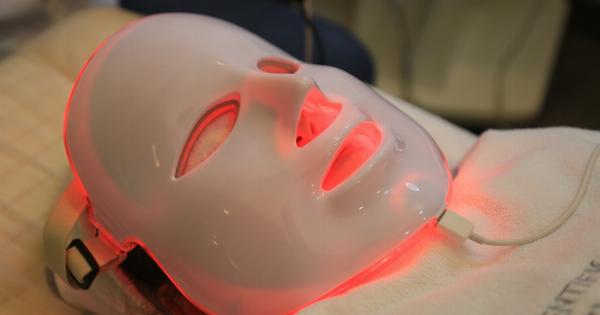Irritable Bowel Syndrome, commonly known as IBS, is a chronic condition that affects the large intestine, causing inflammation and disruption to daily life. Symptoms of IBS can vary widely, from abdominal pain and bloating to diarrhea and constipation.
While there is currently no known cure for IBS, there are various treatments available to manage symptoms and improve quality of life. One of these treatments is seawater therapy.
What is Seawater Therapy?
Seawater therapy involves immersing oneself in natural seawater for therapeutic purposes. The minerals and nutrients found in seawater have been shown to have healing properties for a variety of ailments, including IBS.
Seawater therapy has been practiced for centuries and is widely used in countries such as France, Japan, and Turkey.
How Does Seawater Therapy Help IBS?
Seawater therapy can benefit those with IBS in several ways:.
1. Balances Gut Bacteria
Imbalances in gut bacteria have been linked to IBS. Seawater has been shown to contain beneficial bacteria that can help restore balance to the gut microbiome. This can lead to reduced inflammation and improved digestive function.
2. Reduces Inflammation
Seawater is rich in anti-inflammatory minerals such as magnesium and potassium. These minerals can help reduce inflammation in the gut and improve overall gut health. Inflammation is a common symptom of IBS and can cause discomfort and pain.
3. Improves Digestion
The minerals in seawater can also help improve digestion. Magnesium, for example, can help regulate bowel movements and reduce constipation. Potassium can help improve muscle contractions in the digestive tract, which can lead to better digestion.
4. Relieves Stress
Stress is a common trigger for IBS symptoms. Seawater therapy has been shown to have calming and stress-relieving effects. Immersing oneself in seawater can help promote relaxation and reduce anxiety, which can in turn improve IBS symptoms.
How to Practice Seawater Therapy for IBS
Seawater therapy can be practiced in several ways:.
1. Swimming in the Ocean
Swimming in the ocean is a natural way to practice seawater therapy. It allows for full-body immersion in the healing properties of seawater.
However, it is important to note that pollutants and other contaminants can be present in ocean water, so it is important to find a clean and safe place to swim.
2. Soaking in Seawater Baths
Seawater baths are another way to practice seawater therapy. These baths can be taken at home with sea salt or at a spa or wellness center that offers seawater baths. Soaking in a warm seawater bath can help relax the body and promote healing.
3. Drinking Seawater
Drinking seawater is not recommended as it can be harmful to the body. Sea salt can be added to drinking water to provide some of the beneficial minerals found in seawater.
Precautions for Seawater Therapy
While seawater therapy can be a beneficial treatment for IBS, there are some precautions to keep in mind. It is important to always use clean and safe seawater to avoid exposure to pollutants and contaminants.
Those with open wounds or infections should avoid seawater therapy as it can increase the risk of infection. It is also recommended to consult with a healthcare professional before starting seawater therapy to ensure it is safe and appropriate for individual health needs.
Conclusion
Seawater therapy can be a natural and effective treatment for IBS. Its healing properties can help balance gut bacteria, reduce inflammation, improve digestion, and relieve stress.
While precautions should be taken, practicing seawater therapy can provide relief and improve quality of life for those with IBS.






























